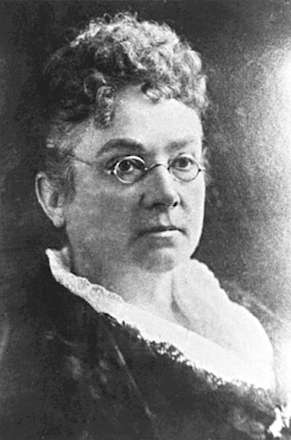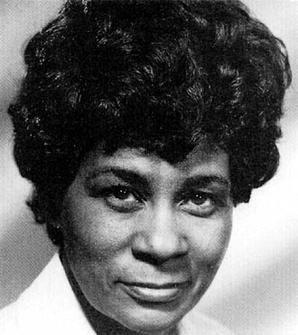
Lincoln MacCauley Alexander was a Canadian lawyer and politician who became the first Black Canadian to be a member of Parliament in the House of Commons, a federal Cabinet Minister, a Chair of the Worker's Compensation Board of Ontario, and the 24th Lieutenant Governor of Ontario from 1985 to 1991. Alexander was also a governor of the Canadian Unity Council.

Jean Augustine is a Grenada-born Canadian politician. She was the first Black Canadian woman to serve as a federal Minister of the Crown and Member of Parliament.

Black Canadians, also known as Afro-Canadians, are people of full or partial sub-Saharan African descent who are citizens or permanent residents of Canada. The majority of Black Canadians are of Caribbean and African immigrant origin, though the Black Canadian population also consists of African American immigrants and their descendants. Black Canadian migration from Africa has risen substantially since 2011.

Emily Howard Stowe was a Canadian physician who was the first female physician to practise in Canada, the second licensed female physician in Canada and an activist for women's rights and suffrage. Stowe helped found the women's suffrage movement in Canada and campaigned for the country's first medical college for women.

Lawrence Hill is a Canadian novelist, essayist, and memoirist. He is known for his 2007 novel The Book of Negroes, inspired by the Black Loyalists given freedom and resettled in Nova Scotia by the British after the American Revolutionary War, and his 2001 memoir Black Berry, Sweet Juice: On Being Black and White in Canada. The Book of Negroes was adapted for a TV mini-series produced in 2015. He was selected in 2013 for the Massey Lectures: he drew from his non-fiction book Blood: The Stuff of Life, published that year. His ten books include other non-fiction and fictional works, and some have been translated into other languages and published in numerous other countries.

Edward James Livingstone was a Canadian sports team owner and manager. He was the principal owner of the Toronto Shamrocks and the Toronto Blueshirts professional ice hockey clubs of the National Hockey Association (NHA), where his battles with his fellow owners led them to create the National Hockey League.

The Toronto Caribbean Carnival, formerly known as Caribana, is a festival of Caribbean culture and traditions held each summer in the city of Toronto, Ontario, Canada. It is a pan-Caribbean Carnival event and has been billed as North America's largest street festival, frequented by over 1.3 million visitors each year for the festival's final parade and an overall attendance of 2 million.

Mary Burnett Talbert was an American orator, activist, suffragist and reformer. In 2005, Talbert was inducted into the National Women's Hall of Fame.
The history of feminism in Canada has been a gradual struggle aimed at establishing equal rights. The history of Canadian feminism, like modern Western feminism in other countries, has been divided by scholars into four "waves", each describing a period of intense activism and social change. The use of "waves" has been critiqued for its failure to include feminist activism of Aboriginal and Québécois women who organized for changes in their own communities as well as for larger social change.

The first instances of organized women's ice hockey in Canada date back to the 1890s when it was played at the university level. The Women's Hockey Association claims that the city of Ottawa, Ontario hosted the first game in 1891. In 1920, Lady Meredith, an avid sportswoman and wife of Sir Vincent Meredith of Montreal donated the Lady Meredith Cup to the Quebec Ladies' Hockey Association, said to be the first women's ice hockey trophy created for a competition in Canada. At the time women competed in ankle-length skirts.
Fran Rider CM OOnt is a Canadian ice hockey executive, and former player. She has made a substantial impact on the growth and development of the modern game of female hockey, and is one of the founders of the Ontario Women's Hockey Association. Rider has been both an ice hockey player and organizer for the women's category of the sport. She began playing ice hockey in 1967, with the Brampton Canadettes, the predecessor to the Brampton Thunder. Rider was inducted into the IIHF Hall of Fame in 2015.

Women's suffrage in Canada occurred at different times in different jurisdictions to different demographics of women. Women's right to vote began in the three prairie provinces. In 1916, suffrage was earned by women in Manitoba, Saskatchewan, and Alberta. The federal government granted limited war-time suffrage to some women in 1917 and followed with full suffrage in 1918, at least, granting it on same basis as men, that is, certain races and status were excluded from voting in federal elections prior to 1960.

The Toronto Heliconian Club is a non-profit association of women involved in the arts and letters based in Toronto, Ontario. It operates out of Heliconian Hall, a historic building located in the Yorkville area of central Toronto. Founded in 1909, the Club still focuses on its original commitment to women supporting and working in the arts.

Kathleen "Kay" Livingstone was a social activist, actor and broadcaster. In 1973, her efforts led to the first National Congress of Black Women of Canada.
Phyllis Theodosia Simmons Brooks was a Canadian educator.
Alcenya Crowley, born Alcenya McElwain, was an American-born Canadian educator and activist.
Penelope "Penny" Hodge was a Canadian office worker and activist.
Millicent Carey Burgess is a Canadian educator. She may have been the first black teacher for the Toronto District School Board.
The Congress of Black Women of Canada (CBWC) /Congrès des femmes noires du Canada, which began in 1973, is a national non-profit organization that "is dedicated to improving the lives of all Black women and their families in their local and national communities." It arose to organize Canadian Black women and focus on their specific issues and concerns, separate from the general women's movement and Black nationalist organizations, which did not always represent the interests of Black women around issues of race, gender, and class oppression. The organizing and advocacy work of the CBWC has focused on "such issues as health, housing, racism, education, immigration, criminal law, police-community relations and child development."
The Coloured Women's Club of Montreal (CWCM) was founded in 1902 in Montreal, Canada, by seven African-Canadian women and has made significant contributions to Montreal's black community. It ran along the lines of the American National Association of Colored Women's Clubs, and its first president was Anne Greenup.











